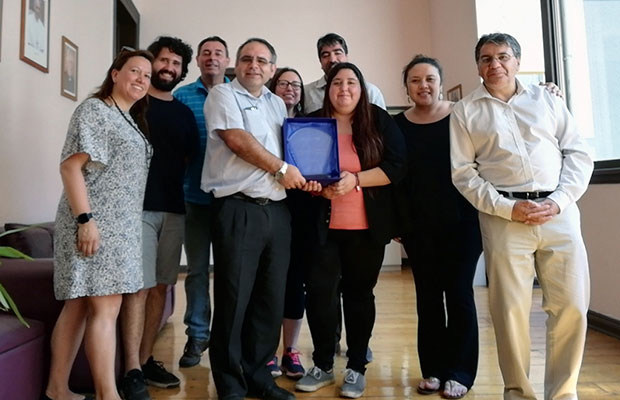
Innovative Technology to Track Homeless Youth
No one really knows how many kids roam the streets of Santiago, Chile—because they are notoriously difficult to find. Today, thanks to an innovative, award-winning tool created by staff at Fundacíon Don Bosco, case workers can literally see where they are—and deliver critical, personalized assistance in a fraction of the time.
“There is no computer engineer behind this,” says Sergio Mercado, the Foundation’s executive director. “It’s just us, self-taught people who can proudly give visibility to those who are invisible to society.”
Developed as part of the country-wide “Technologies with Social Impact” competition sponsored by Microsoft Chile and others, the mobile app—called Registro Circuito de Calle (“Street Circuit Registration”)—helps social workers map kids’ locations, travel patterns, and other key data points from their phones. After uploading the data to a secure, cloud-based visualization platform, they can monitor for trends that help them quickly locate homeless youth and deliver a warm meal, healthcare and other assistance.
“Such capabilities can be transformative,” says Father Mark Hyde, director of Salesian Missions. Out of necessity, homeless youth are constantly on the move—whether it is to evade drug dealers and human traffickers or to search for food, work or shelter. Staff who previously relied on memory, handwritten notes and scribbled maps, might spend days trying to locate and check on one of their children, with no guarantee of success. The more data they load into the app, the “smarter” it becomes—which increases staff efficiency and, most importantly, their ability to do the job they’re passionate about: helping more poor youth.
Mr. Mercado confirms that it’s already working. “Our team used to spend up to 40 minutes in the office trying to figure out information on just one child,” he says. “With the app, this task now takes 20 seconds.” Since implementing the technology earlier this year, case workers have increased the number of children served through the foundation by 10 percent.
In all, 44 non-governmental organizations entered “Technologies with Social Impact,” which empowered employees with little to no technical expertise to bring their vision to fruition. At a ceremony in January, competition jurors announced Fundacíon Don Bosco as its first-place winner. Looking ahead, staff are excited to share this powerful technology with other organizations around the world who serve homeless youth and adults.
First established in 1988, Fundacíon Don Bosco has, in the time since, successfully educated and provided social services to more than 15,000 marginalized children and adults.
Our mission brings hope to street children through innovative solutions. What’s your mission?
Learn more about our work in Chile.

